In this excerpt, Chavarría discusses the significance and meaning of the devil character in the Congo tradition.
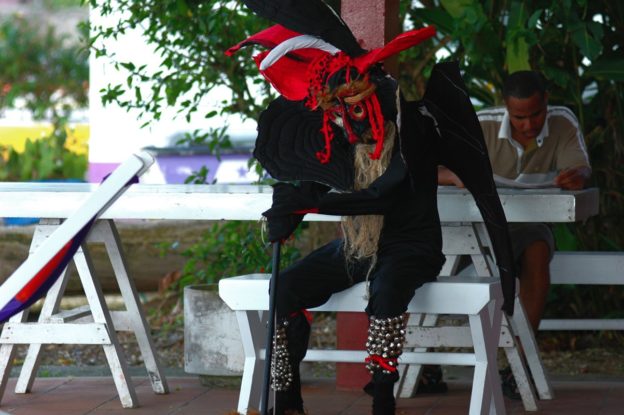


In this excerpt, Chavarría discusses the significance and meaning of the devil character in the Congo tradition.
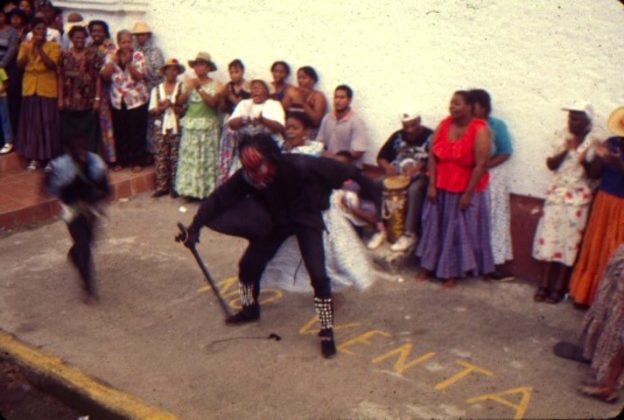
In this excerpt, Chavarría discusses the ways in which the Devil’s mask initially captured his attention and the double perspective/participant-observer position that it provides.
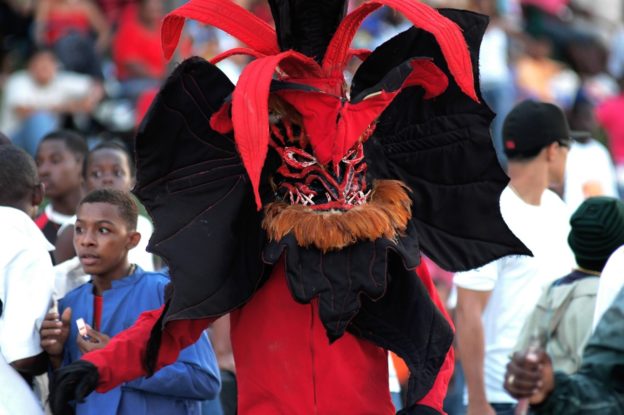
In this excerpt, Chavarría discusses the ways in which the Major Devil character has changed over his lifetime. He focuses particularly on his choice to follow his mentor’s example by wearing a smaller mask and discusses the value of smaller masks in relationship to the value of larger ones, which many younger devils choose to wear.
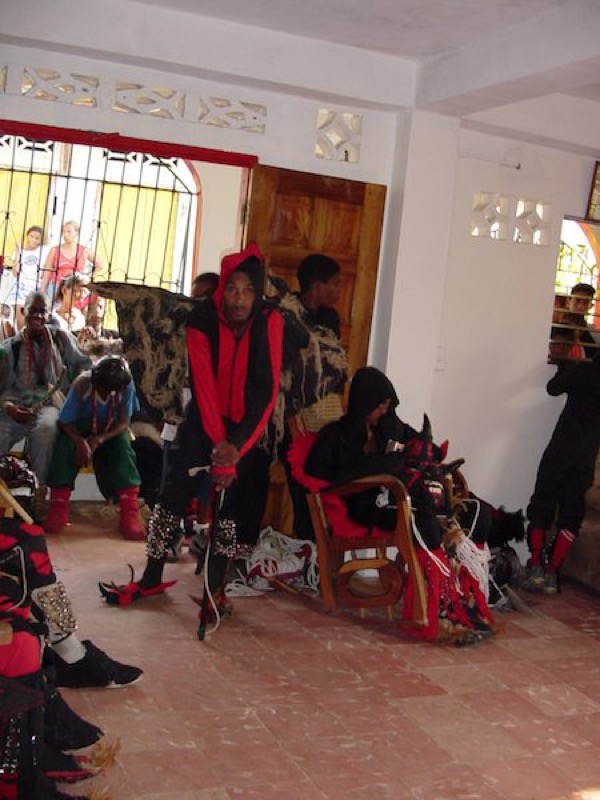
In this excerpt, Jiménez describes the “pujido”/”grunt” that the devil character uses to build internal energy and externalize it. He then discusses his interpretation of its relationship to the occult and a potential existential compromise.
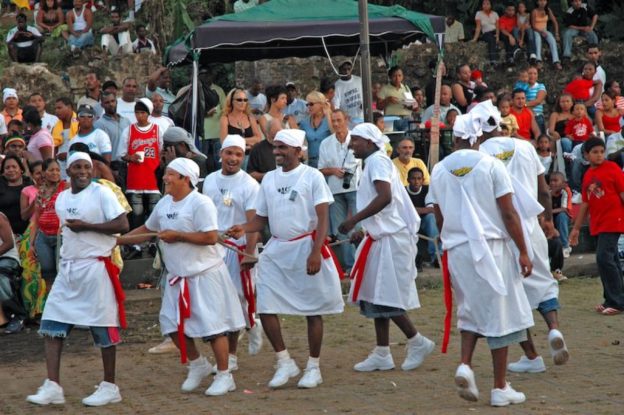
In this excerpt, Molinar shares his experience of being symbolically blessed or “baptized” as the Major Devil character. Just as the “pujido” or “grunt” helps to amplify internal energy, the process of being symbolically baptized helps to abate energy.
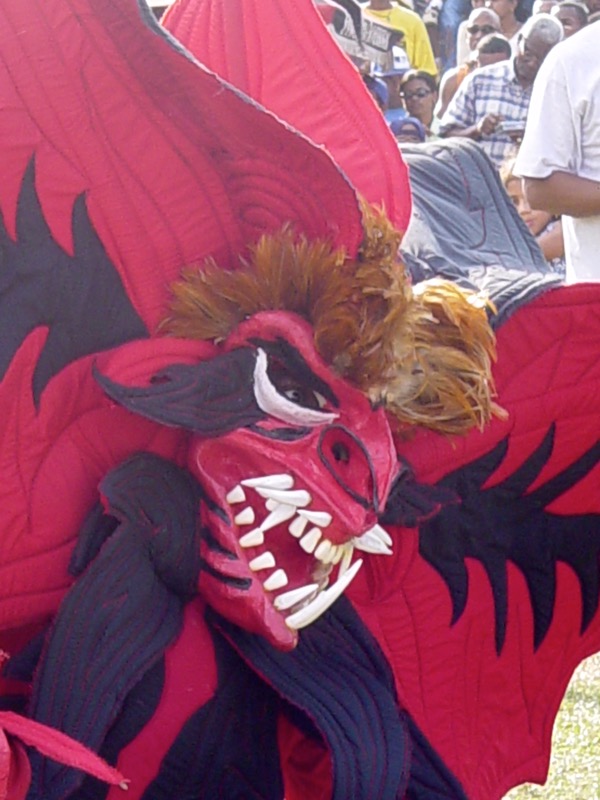
In this excerpt, Molinar discusses the practice of symbolically selling the devil at the conclusion of the Congo game and his interpretation of what the devil character represents within the Congo tradition.
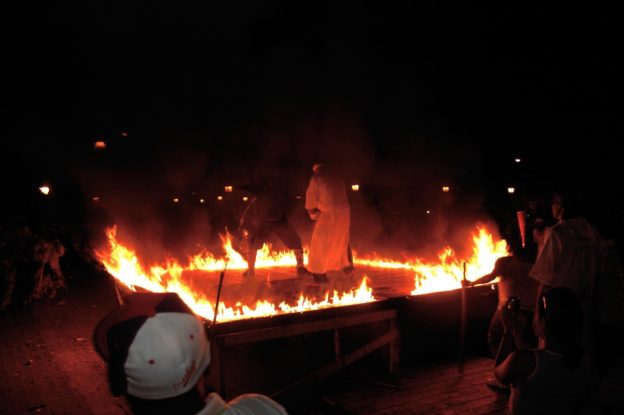
In this excerpt, Molinar discusses a few of the changes that he has witnessed in the devil character’s embodiment within the tradition that displease him and responds to Arturo Lindsay’s question regarding the escalating violence he has witnessed with the way some younger practitioners wield their whips.
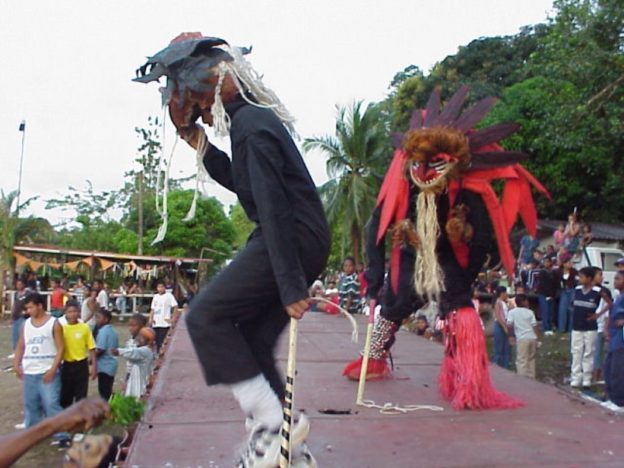
In this excerpt, Molinar discusses the current existence of three people who play the role of Major Devil in the Congo tradition even though the official narrative about the tradition only signifies one Major Devil character playing at any one time.
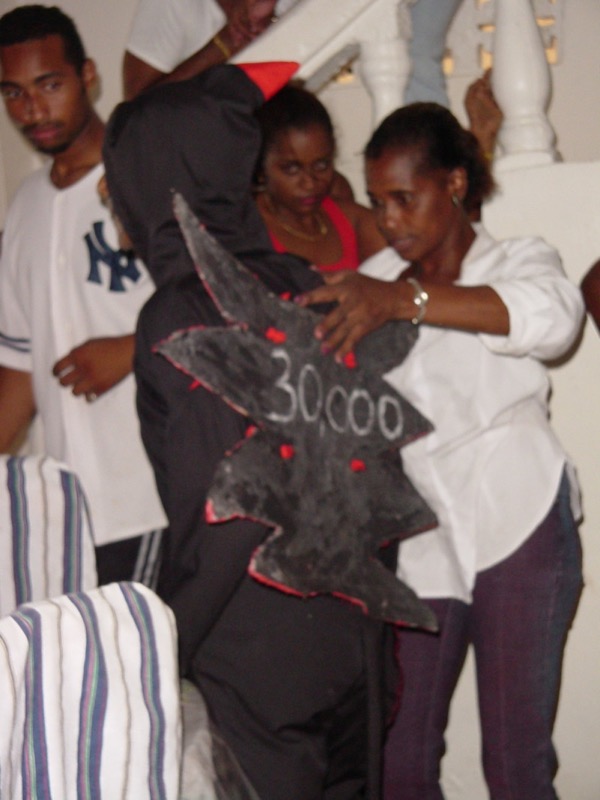
In this excerpt, Solís discusses the ritual process that Celedonio used to prepared to “transform” into the Major Devil character.
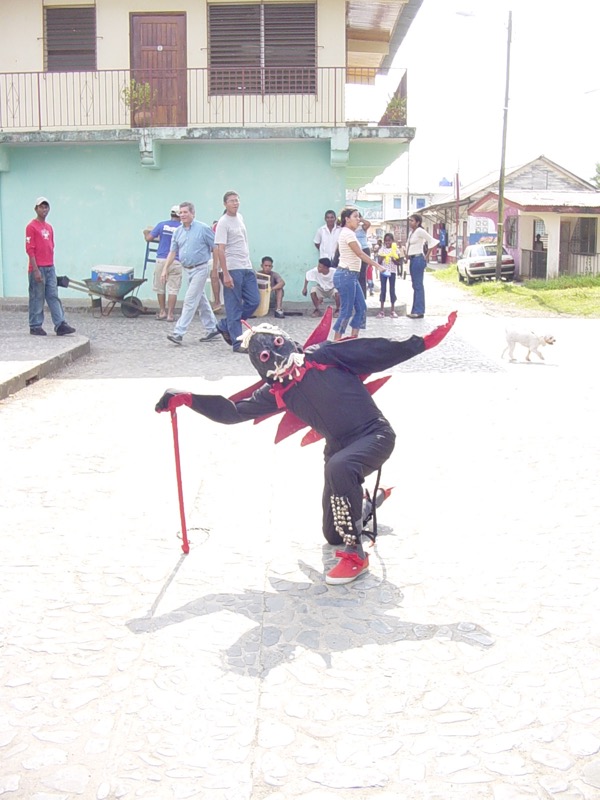
In this excerpt, Molinar discusses how he came to play the role of Major Devil in Portobelo. And how he reintroduced the practice of “Blessing” or “Baptizing” the Devil.